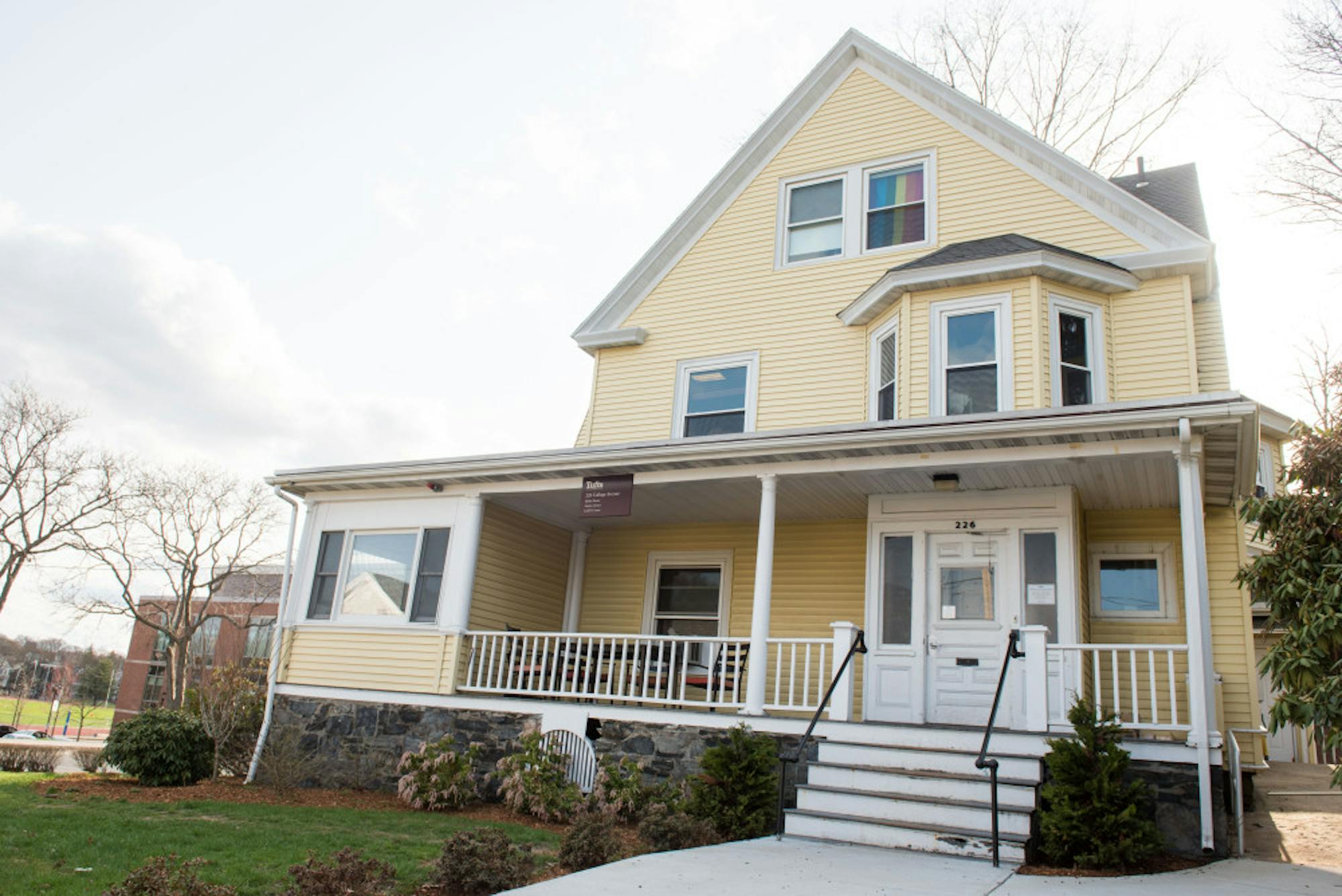Tufts QSA, an acronym which formerly stood for “Queer-Straight Alliance,” has recently changed its name to “Queer Students Association” and altered the group’s organization to better meet the needs of queer students on campus.
According to one of the group’s leaders, junior Julia Fowler, before the name change, the QSA had not felt as though it functioned quite as well as members wanted.
“So as we are restructuring it, we are really interested in making it a focus, a hub for queer students,” she explained. “Sort of a place where, especially for incoming freshman, but any interested student, can find what part of Tufts queer culture they want to be a part of. We can help them find that.”
Fowler also pointed out that according to the TCU, even before the revaluation, the group wasn't technically listed as the Queer-Straight Alliance by TCU.
“We just sort of realized that technically, they have us down as Queer Students Association," Fowler continued. "It's sort of been a running joke, but as we were thinking of restructuring we thought, maybe we like that better!”
In the past, QSA has held a weekly discussion group, but -- according to current plans -- these meetings will be eliminated next semester.
“We found that in the past the space wasn’t as intentional as we had hoped for, and it really wasn’t serving the needs of students here at Tufts," QSA leader and junior Bruce Bausk said. "And we already have so many discussion groups through the LGBTQ center … [that] are run well and are well attended."
In addition to QSA, according to the LGBT center’s website, these groups for queer students on campus include Ace Space, women’s group, Bisexual/Pansexual Students Group, LOQSOCA (Loving Ourselves as Queer Students of Color in Action), T-Time discussion group, Students Who Are Questioning or Coming Out, Team Q and Rainbow house, all with their own focuses under the umbrella of the LGBT community.
Bausk said that, instead, he hopes the QSA can serve as a way to help students find these existing resources.
"Since those [resources] are already in place, we felt that QSA would function better as a means to direct students to existing groups rather than attempting to have a discussion group that wasn’t working,” he said. "There's just a lot of smaller groups we feel are run well … and are well attended."
The group's new functional goals represent a significant transition for the QSA.
“This is a big change … this is a complete restructuring and rebranding we are doing to create a more effective and more intentional space for queer students on campus," Bausk said.
These changes to the group were detailed in its event, "Tufts Queer Student’s Association: What’s New?” on Sunday, April 19, during which Bausk was elected as President and Fowler was elected as Treasurer.
Although the group’s name and organization is changing, they are still planning to hold events and workshops, as well as bring speakers to campus.
"Through TCU, we have access to the resources to bring valuable programming and queer targeted events to campus," Bausk said.
This semester, the QSA brought in Mark Travis Rivera, an activist, choreographer and writer, to speak in March about self-love and self-care and its importance in the role of leadership, in an event entitled “Love is an Act of Leadership.” They co-sponsored events through the LGBT center like Sarah Schulman’s talk on April 15 called “Hearing Palestine: A Queer Jewish Woman on the Politics of Solidarity.”
QSA also hosted their annual drag show this past Saturday and plan to continue the event in future years. According to Fowler, this summer they are planning to march in Boston Pride as a group. Bausk and Fowler also expressed interest in a QSA-hosted queer-focused activities fair at the beginning of the semester to connect students, especially underclassmen, to different resources on campus.
As for meetings, QSA plans to have biweekly or monthly meetings in which anyone is welcome to attend and propose queer-focused speakers, activities and events. Events hosted by the Queer Students Association will connect with other queer-focused groups on campus to coordinate and work together. According to Fowler, they plan to have representatives from other queer-related groups serve on their board to provide input on how to run events and allocate spending.
Tara MacKenzie, a sophomore, was present at the "What's New?" event.
“I think the new structure of the QSA is just what our community needs," she said. "The change in framework will be extremely beneficial in uniting and organizing the many groups we have on campus that haven't interacted much in the past."
MacKenzie does worry that the removal of the weekly discussions does away with a broader space for those who aren't comfortable attending more specific discussions and meetings.
"My only concern about the new structure is that there will no longer be a general discussion based group on campus," she said. "QSA used to serve as a place where people of any identity could come to share and learn about different LGBTQ issues. I'm worried that ditching this framework will eliminate a space for those who don't feel comfortable participating in or who feel like they don't completely fit in the more specific groups at Tufts."
However, she also expressed appreciation for the new structure in which new students will be able to use QSA as a hub through which they can find especially specific groups.
"I also think it's awesome ... especially since some groups aren't frequently advertised or are new and haven't had much exposure yet," she said. "This could be really great for freshmen or for others who have wanted to be more engaged in the queer/trans/ace community but didn't know what opportunities exist or how to get involved.”






